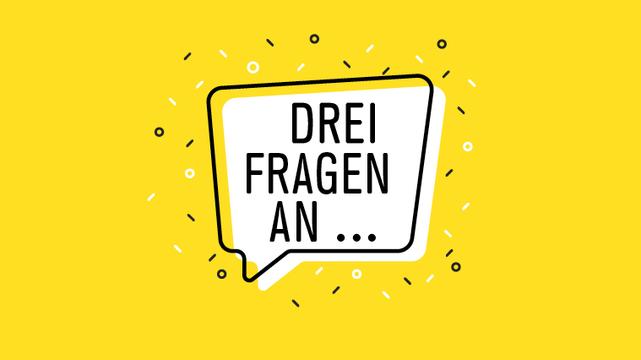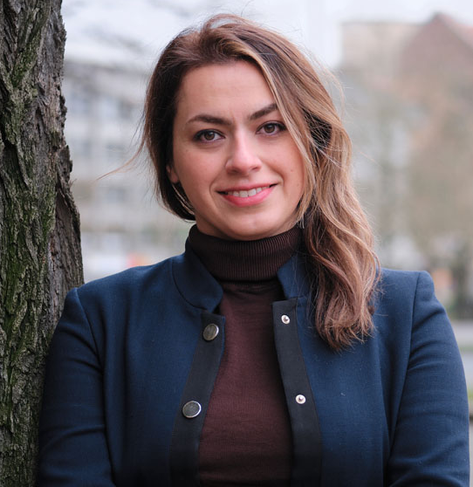Three questions put to Prof Dr Sahar Vahdati
diesen Beitrag auf Deutsch lesen
Prof Dr Sahar Vahdati was appointed professor at Leibniz Universität Hannover at the beginning of October 2024 and heads the AI and Scholarly Communication research group at TIB. In this interview, she talks about her research on artificial intelligence (AI), future research topics and her career paths to date and on today’s “International Day of Women and Girls in Science”, also about the role of women in science. She is making an appeal to all young girls to dream big, believe in themselves and not let anyone set limits, because science is waiting for these girls.
Professor Vahdati, you have been leading the “AI and Scholarly Communication” research group at TIB for several months now. Can you tell us what your research involves?
As an AI scientist, my work bridges theoretical research and practical applications in scholarly communication and science. My focus is on developing AI-driven solutions that streamline the research lifecycle for scientists, while ensuring that science-based knowledge is more accessible, verifiable and impactful for society.
Prof Dr Sahar Vahdati // Photo: Sören PinsdorfA significant part of my research revolves around foundation models and their potential to drive progress toward Artificial General Intelligence (AGI). A key challenge in this domain is ensuring the factual accuracy and trustworthiness of Large Language Models (LLMs), especially in high-impact fields such as scientific research, and tackling societal challenges such as misinformation. At TIB, we have rich scientific and historical knowledge repositories that can significantly improve the factual accuracy of AI systems. By leveraging these vast knowledge assets, we can ensure that AI-driven solutions provide trustworthy, verifiable, and easily accessible information to researchers and the public. Given this unique opportunity, I have been focusing on strengthening my vision around these principles, working towards integrating structured knowledge, enhancing logical reasoning, and developing AI-powered tools that support evidence-based decision-making.
Additionally, I work on strengthening the reasoning capabilities of LLMs and developing practical AI-driven applications, such as science-based chatbots designed to combat misinformation and prevent the spread of false facts. These solutions play a crucial role in ensuring that citizens receive accurate, science-backed information, fostering greater public trust in AI and scientific communication.
Which topics or research areas are particularly important to you and offer great potential?
My research is deeply rooted in knowledge graphs, representation learning, and reasoning-enhanced AI, particularly in the context of Large Language Models (LLMs). I also explore agent-based systems and reinforcement learning to improve AI’s adaptability, autonomy and logical consistency.
In terms of application, I am particularly interested in scholarly communication as a foundation for advancing AI-driven solutions in education, psychology, medical sciences, societal discourse and environmental research. These domains benefit greatly from trustworthy AI systems that ensure factual accuracy, explainability and ethical knowledge dissemination, ultimately enhancing public trust and scientific collaboration.
Today, 11 February, is the International Day of Women and Girls in Science, which is intended to honour the role that girls and women play in science. The proportion of female professors in Germany is still unequal, with less than a third being female. How did you get into science and what was your path to a professorship like?
Beside my personal journey, I also reflect on the importance of representation, encouragement and empowerment for young girls who dream of a future in science. One of my key missions is to show young girls that everything is possible—they are capable of achieving anything they can imagine. It all starts in the mind.
From a young age, I was drawn to knowledge and discovery, becoming my city’s youngest library member at four. Recognizing this, my parents unknowingly nurtured my future by playing a game where I acted as a university professor, answering their questions about my “lectures.” What started as play became a powerful affirmation – shaping my aspirations. However, my journey was not easy. I have always been in the minority – being born and raised in Iran, where women’s rights are currently severely restricted, I truly understand what it means to yearn for freedom, equality and opportunities. After living in Germany for more than 15 years, I have had the privilege of experiencing two different realities for women in science and women freedom. In Iran, women must constantly fight for their most basic rights, while in Germany, they are encouraged to dream, lead, and contribute to society on equal footing. This contrast has shaped my deep appreciation for my Chosen Homeland, Germany, for freedom in life – it strengthens my commitment to empowering young women to pursue their dreams in science and academia.
The road to becoming a professor has been challenging but deeply rewarding. If I could do it, so can other women and girls. It requires being able to dream, and work hard and motivated towards that. A supportive family and an encouraging society can make the journey easier, but even if you lack these privileges, you can still succeed – you can create opportunities for yourself through determination and belief in your own potential.
“Woman, Life, Freedom” is and will always be the right slogan for us. To all young girls out there: dream big, believe in yourself, and never let anyone define your limits. Science is waiting for you!
About Prof Dr Sahar Vahdati
Since 1 October 2024, Prof Dr Sahar Vahdati heads the research group “AI and Scholarly Communication” at the TIB – Leibniz Information Centre for Science and Technology and University Library in Hannover. At the same time, she has taken up her position as Professor for “Data Science and Digital Libraries” at TIB and the Faculty of Electrical Engineering and Computer Science at Leibniz Universität Hannover. Her research focuses on knowledge graphs, representation learning and reasoning-enhanced AI, particularly in the context of Large Language Models (LLMs).
Before joining Leibniz Universität Hannover (LUH) and TIB, Prof Dr Sahar Vahdati, born in 1983, led the Nature-Inspired Machine Intelligence research group at TUD Dresden University of Technology () within the ScaDS.AI Center of Excellence. This cross-organisational group was initially established at the InfAI Institute – Leipzig University, which she initiated and later continued at TUD. The group will continue its mission, now with the involvement of TIB and LUH.
Prior to that, Vahdati was a postdoctoral researcher at the University of Oxford, focusing on advanced AI methodologies. She completed both her master’s and Ph.D. in Computer Science at Rheinische Friedrich-Wilhelms-Universität Bonn, where she laid the foundation for her research in AI, machine learning and knowledge representation.
#ArtificialIntelligence #Interview #LizenzCCBY40INT #OpenResearchKnowledgeGraph #ResearchAndDevelopment

